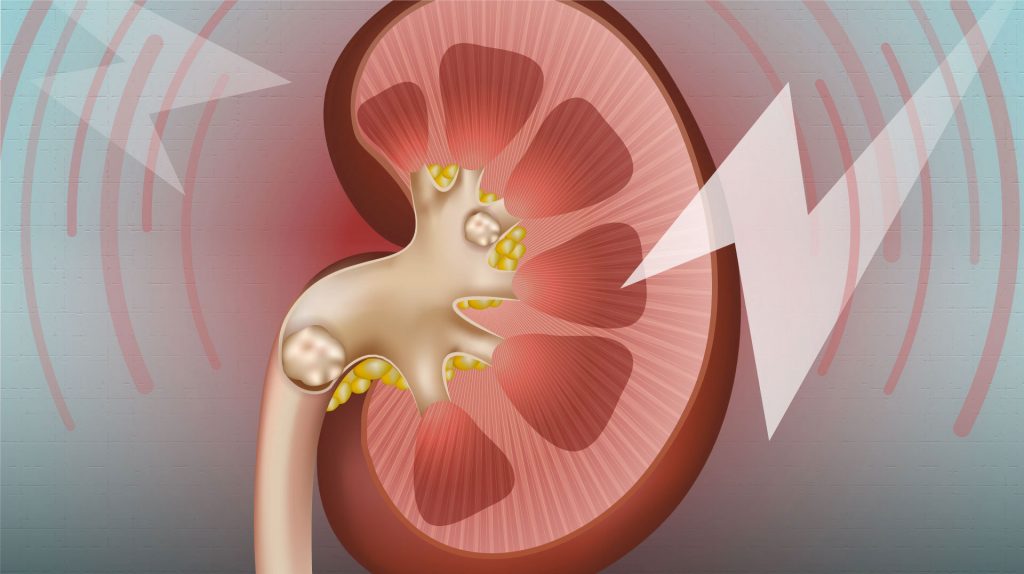Kidney Failure Caused by Painkillers: Marengo CIMS commemorates World Kidney Day by spreading awareness

- Excessive dependence on painkillers can cause damage to the kidneys
- There is an increasing trend of self-medicating in populations leading to several side effects, damage to an organ being one of them
Ahmedabad: At Marengo CIMS Hospital in Ahmedabad, we recognize that pain is a prevalent symptom affecting many individuals, significantly impacting their daily activities. Pain can manifest anywhere in the body, from head to toe. Often, individuals resort to over-the-counter pain relievers or medications at home to alleviate their discomfort, unaware of the potential risks, such as kidney damage. The use of painkillers can lead to a spectrum of kidney ailments, ranging from mild inflammation to severe renal failure.
In today’s market, there exists a variety of pain-relieving drugs, broadly categorized into two types: NSAIDs and non-NSAIDs. The first type is the drugs containing NSAIDs like Diclofenac, Nimesulide, Ibuprofen, etc. Unadvised use of these drugs can cause intestinal and kidney diseases. Another type is non NSAIDs like Tramadol, Paracetamol, etc. containing drugs that are safe for the intestines and kidneys.
Dr Siddharth Mavani, Director – Nephrology & Kidney Transplant, Marengo CIMS Hospital says, “The effects of NSAID drugs on the kidney can be in three main ways: Temporary or acute renal failure, Interstitial Nephritis, and/ or Permanent or chronic kidney failure also called acute nephritis. Acute Kidney Failure means sudden kidney failure. In many patients, taking just one or two NSAID medications can lead to Kidney Failure. This is not very common, but not completely unusual either.

In acute kidney failure, diabetic patients, blood pressure and heart patients whose blood pressure fluctuates a lot, have diarrhea-vomiting, have used dye in CT scan, etc. The use of NSAID type painkillers in such a situation can sometimes cause acute kidney failure, so a person with this type of illness or problem should use painkillers only as advised by the doctor. These drugs are like a double-edged sword which can benefit us or can be dangerous.”
Symptoms of any type of acute renal failure have the following symptoms: Loss of appetite, Nausea and vomiting, and Swelling of the feet. There may be symptoms such as reduced or stopped urination. Acute kidney failure is diagnosed by laboratory tests like creatinine, urea, potassium, urine, and sonography.
The treatment is first of all stop painkillers immediately and consult a Physician or Nephrologist. Some patients may also need Dialysis. There are many causes of sudden or acute kidney failure, but acute kidney failure caused by taking painkillers is the main cause. Painkillers are responsible in 40 to 50 percent of cases.
Dr Siddharth explains further, “Acute Interstitial Nephritis is a type of allergy to painkiller drugs, which affects the kidneys. For example, a person may experience swelling of the kidneys as a person sneezes from certain medications. Due to this kidney function gradually decreases. There are no symptoms of this type of disease. It can be definitively diagnosed only through laboratory tests. This can be exacerbated by medications such as ibuprofen. A kidney biopsy is often required for diagnosis. The treatment is again where painkillers should be stopped and a course of steroids should be taken as advised by the kidney doctor.”
Chronic Kidney Failure is a type of kidney failure known for the first time in Europe where watchmakers i.e. artisans who make wristwatches used to take painkiller drugs for a long time (years) for sore throat. This relieved their pain, but in the long run, most of the craftsmen’s kidneys failed simultaneously and permanently. Taking these types of drugs for a long period stops the blood circulation inside the kidney and gradually leads to kidney failure.
The diagnosis would include a patient’s history of long-term painkiller medication is helpful for diagnosis. However, a definite diagnosis requires laboratory tests, sonography, and a CT scan. In the current time, the proportion of this failure has decreased. However, some people who take NSAIDs for long for chronic pain can develop this condition. The treatment for this chronic or permanent kidney failure cannot be normalized once it occurs, so it is advisable to stop the use of painkillers when diagnosed. This is its main treatment. Dialysis or kidney transplant may be required in advanced stages, so it is said that prevention is better than cure for this disease. Stop indiscriminate use of painkillers without doctor’s advice and always use painkillers only if advised.
The burden of chronic kidney disease (CKD) in India cannot be assessed accurately. The approximate prevalence of CKD is 800 per million population, and the incidence of end-stage renal disease (ESRD) is 150–200 per million population. Around 10 percent of the Indian population suffers from chronic kidney disease (CKD), and every year over one lakh cases of renal failure are reported. For every two women who contract kidney failures, three men have kidney failures. And yet, there are women more prone to kidney failures globally.




